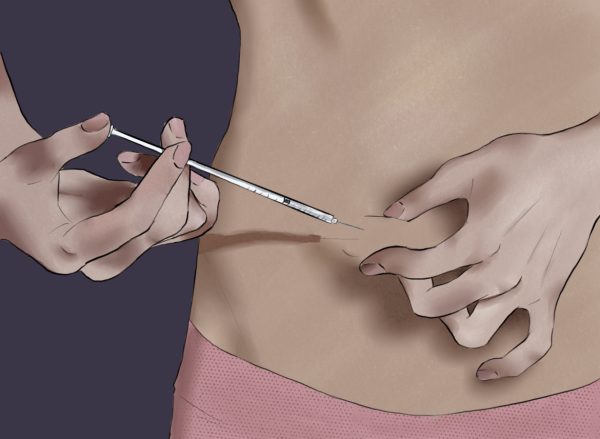How Much Stress is Too Much Stress for Teens?
Parents today often complain about their teenager’s stress levels. ‘They’re just overreacting;’ ‘Back in my day, I had it much worse;’ ‘Stop complaining and just get the thing done already,’ are just a few of the expressions I have heard from the mouths of adults. As a teenager who is enrolled in multiple AP courses and involved in several time-consuming extracurriculars, finding time to decompress and destress can be a chore. Ever since the Covid-19 pandemic, stress in teenagers has risen dramatically; abilities and strategies to deal with that stress, though, have not been emphasized enough. The question that arises is, “How much stress is too much stress?”
In simple terms, stress is anything that threatens or perceives to threaten one’s wellbeing, taxing one’s coping abilities. For example, if an adult complains to a child that he or she is not doing well in school, pressure is applied on the child to perform better. The child, then, might stress about getting all the right answers and receiving good marks to please his or her parent. According to the American Institute of Stress, academic stress is one of the most common stressors among high school students. Others include negative thoughts or feelings about themselves, body changes, grief, moving schools, and having very high expectations of themselves. Being a teenager myself, I fall prey to many of these stressors in my daily life, and finding mechanisms to cope successfully with all I must get done is very challenging. When stress overtakes someone’s mind, clouding his or her judgment and hindering his or her ability to function, it is becoming too much to bear.
The coronavirus pandemic impacted millions of people’s lives. Teenagers, in their formative years, have had an even harder time rebounding from Covid; reacting to the reality of their situations—the world shutting down, school moving online, and socialization becoming harder than ever—increased stress levels. An article written by Harvard Summer School (www.summer.harvard.edu) explained, “43 percent of teens surveyed in 2020 said their stress levels had gone up, and 45 percent said they had a hard time concentrating on schoolwork.” Schoolwork is stressful enough, but now that Covid has changed teenagers’ stress susceptibility, the work becomes even more challenging.
Despite stress being harmful and causing angst in teens’ lives, it is lessened over time and with help from proper coping mechanisms. The American Institute of Stress recommends teens get adequate sleep, fuel their bodies with enough food, and exercise regularly. In addition, avoidance of drugs and caffeine, breaking large tasks down into smaller ones, and decreasing negative self-talk and thoughts help boost a teen’s tolerance of stress. And not all stress is bad; the right kind of stress pushes people toward action and productivity. According to Harvard Summer School, “Good stress is called ‘eustress’ and can help get you excited and energized.” However, relying on stress as a motivator can be harmful to one’s body and mind.
There are many harmful side effects of excessive stress. Everyone, even the most stressed-out teenager, has a system in his or her body responsible for regulating stress reactions and responses: the nervous system. Specifically, the sympathetic and parasympathetic divisions of the autonomic, or involuntary, nervous system help manage stress in humans. When a teen is under a strenuous amount of stress, his or her sympathetic nervous system is constantly sending stress signals known as the “fight-or-flight” response. The parasympathetic nervous system, then, cannot send the reverse response: calming the body down after it has been aroused by a stressful situation. Other problems, like burnout, cause physical and emotional exhaustion, cynicism, and a lower sense of self-effectiveness. All these issues are damaging to a teenager’s developing body, mind, and persona. To reverse the damage, teens must seek out help to deal with their stress; however, many teens—myself included—are reluctant to reach out, fearing being perceived as “weak,” unlike the adults claiming that “teens today have it easy.”
Therefore, students should be offered and encouraged to take advantage of mental health services, like guidance counselors, psychiatrists, and social workers. Additionally, mindful movements, like yoga and mindfulness, should be practiced in physical education along with standard gym activities. If proper care of body and mind is promoted in school, not only will students feel less stressed, but both students and teachers will benefit from their ability to handle schoolwork and the resulting stress better.
The pandemic may be over, but stress in teenagers is a perpetual problem, requiring attention and care by teens, adults, and health professionals.

I am a member of the Class of 2023 and the Driftstone editor-in-chief. Along with creative writing, I enjoy spending time with family and friends, getting...











































